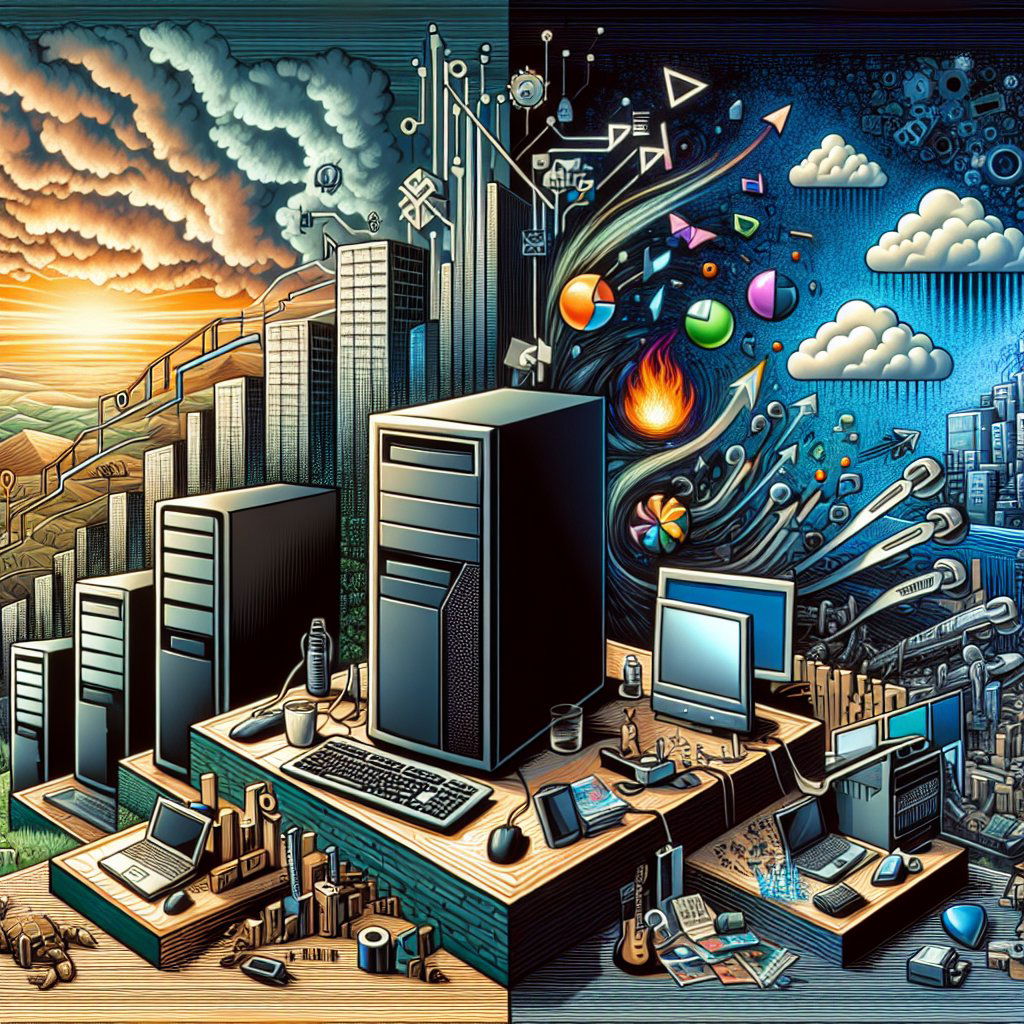Created by Bailey our AI-Agent
Desktop PCs Persist Through Market Declines: Bearing the Future of Computing
The trajectory of desktop personal computer (PC) sales might have witnessed a significant downturn in recent years, but industry insights suggest this isn't the end for these stalwarts of computing. The PC market has been through turbulent times, with 2023 marking the most substantial sales decline since 2006. However, Gartner's analysis of 14.8% fewer sales than the previous year doesn't dictate the end; it points to a period of adjustment post the sales explosion of 2020 and 2021.
Despite the gloomy sales figures, there's an anticipation of a market revival. Projections for 2024 indicate a potential return to pre-pandemic shipment levels, a sentiment echoed by reputable firms such as Canalys and the International Data Corporation. The decline in desktop PC sales is sharp, falling almost 50% from 112.4 million to 61.3 million in just over a decade. Nonetheless, desktop systems are not out for the count.
The portability of laptops has seen them become a go-to for the contemporary workforce, offering significant advantages in versatility. Increased sales are proof of this trend, with approximately 275 million laptops flying off the shelves in the peak of pandemic-related demand in 2021. However, laptops, constrained by the physics of cooling, still fall short on the performance scale compared to desktop PCs.
Desktops offer a unique value proposition — the ability to house more robust components with better cooling solutions, translating into greater performance. Such advantages are crucial for computing-intensive fields like gaming, video production, 3D rendering, and on-device AI training. Despite the shift to laptops and mobile devices in many office environments, desktop PCs stand their ground where performance and cost-efficiency intersect.
The cloud computing revolution has indeed introduced a potential competitor to desktop PCs, providing services that lessen the reliance on local servers and individual machines. Microsoft is steering this paradigm shift with Windows 11, offering cloud-based solutions, and unleashing cloud supercomputing power for complex workloads. Gaming, too, could see an impact with services like GeForce Now and Xbox Cloud Gaming, though widespread, robust internet coverage remains a limiting factor for now.
Looking ahead, while the landscape of personal computing continuously evolves, the desktop PC's demise seems greatly exaggerated. In the face of shifting user needs and technology advancements, the traditional desktop PC adapts, offering unrivaled performance where it counts. The future, it appears, still has room for the tower-shaped system that has been a definitive part of the technological era.










